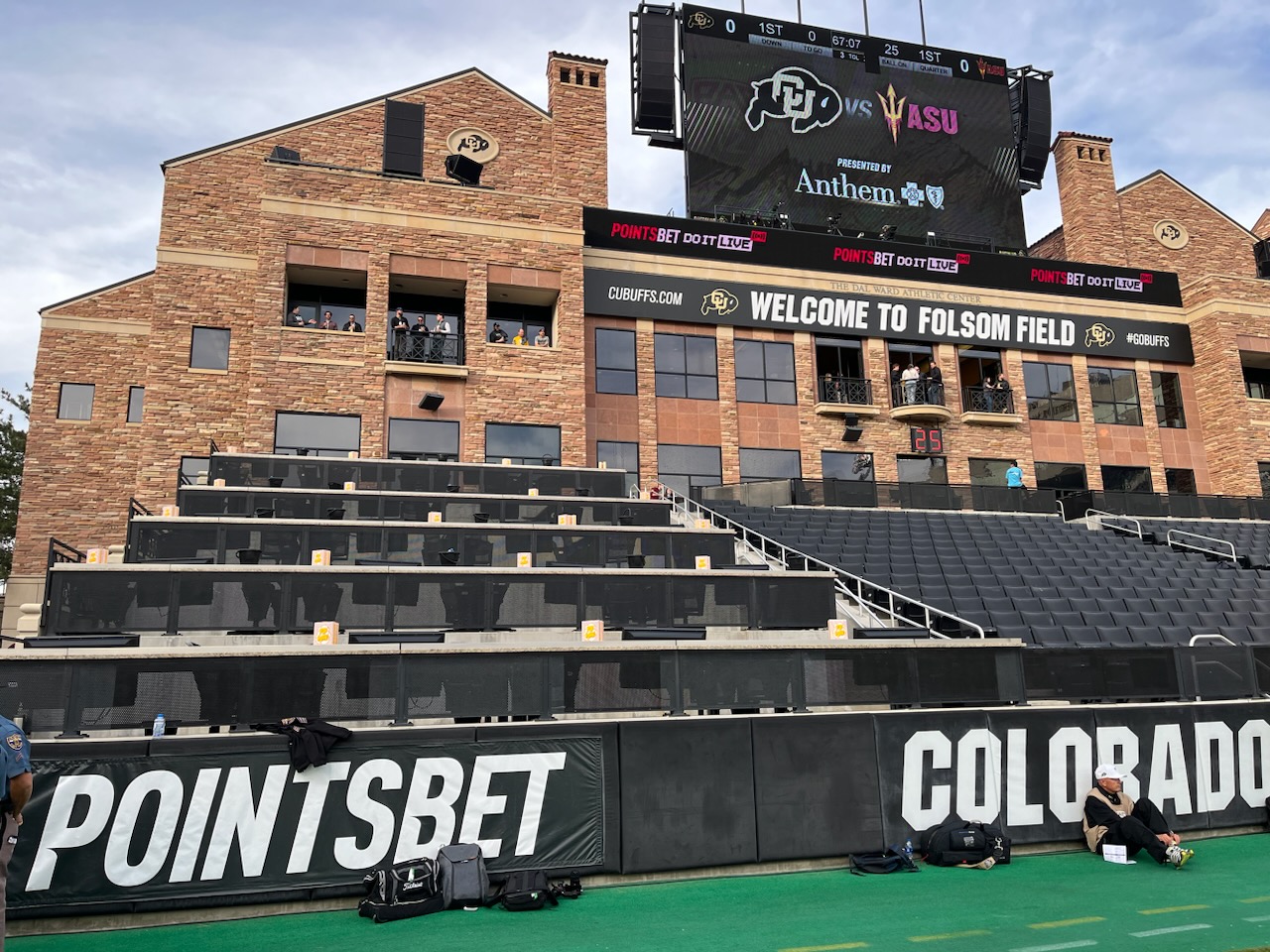Gambling on Campus
As states legalize sports betting, universities weigh risks to students, rewards for athletic department budgets
Colleges’ betting agreements are often hidden from the public
The lack of transparency concerns gambling addiction experts and others already troubled by legalized sports betting on college campuses.
At University of Colorado, a betting playbook aims its pitch at students
Denver-based PointsBet’s deal with the University of Colorado Boulder was one of the first to match a university athletics program with a sports betting platform.
Towson University is trying to get ahead of the lure of sports betting
Towson University is implementing a program that seeks to educate students through robust anti-problem gambling workshops and marketing campaigns.
Buzzy sports betting posts appeal to Gen Z social media audience
Researchers who study social media note that sports betting companies use a playbook that allows them to speak to a young audience.
ABOUT THIS PROJECT
As sports betting in the U.S. soars, universities have been slow to recognize a potential problem.
Only about one in five major public universities has policies in place to restrict sports betting or educate students about potential perils. A handful have sports betting platforms as corporate sponsors. Those companies have purchased the right to promote their brands at stadia and on university sports websites to students, many of whom are under age for legal betting.
That’s a growing concern for betting-addiction experts who cite years of research showing that college students are among the highest risk group for gambling addiction.
Sports Betting on Campus is a four-month investigation into a high-stakes balancing act for universities, one that requires officials to weigh the risks of legal sports betting to students against the financial rewards of those betting deals.
The investigation also explores a lack of transparency in relationships between universities and sports betting companies. A majority of public universities with betting partners shield their agreements from the public. By working through sports marketing companies that are private, they skirt public records laws.
The project includes five text stories, a video report and several graphics. It was produced by students at the Shirley Povich Center for Sports Journalism and Howard Center for Investigative Journalism at the University of Maryland Philip Merrill College of Journalism. More than a dozen student journalists participated in the project working from Maryland and on assignment in Boulder, Colorado.







